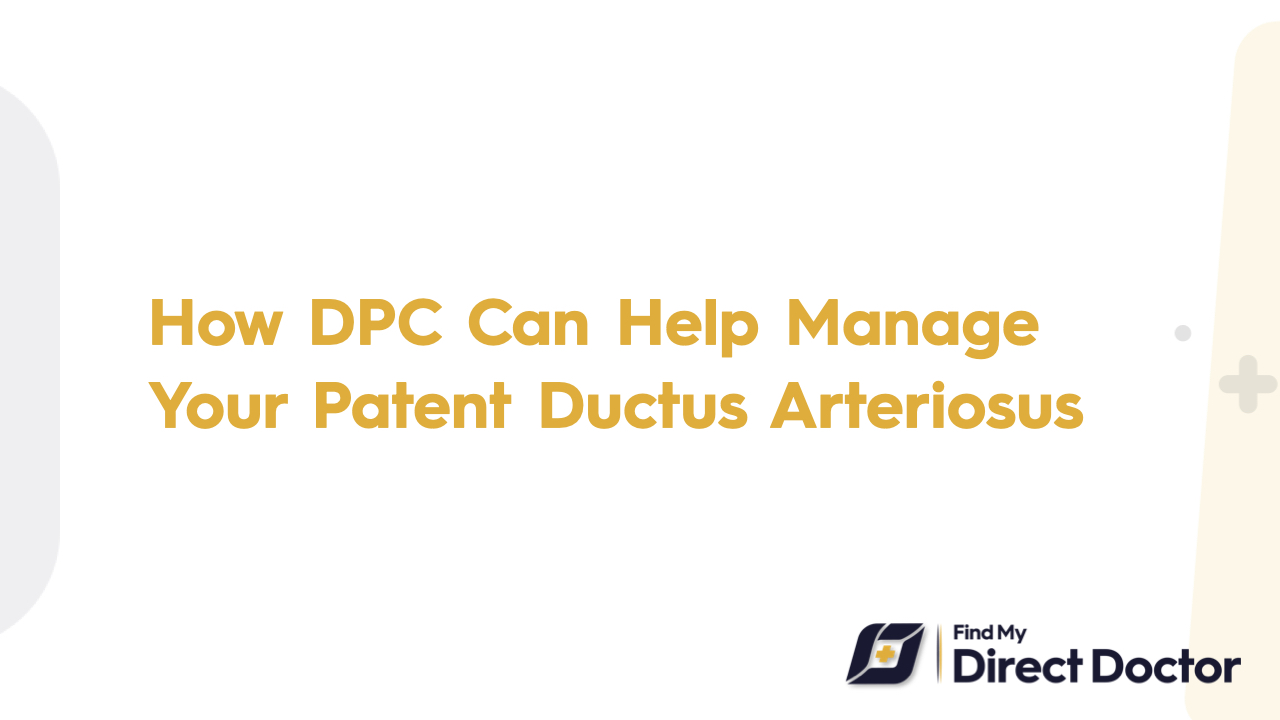



A congenital heart problem known as patent ductus arteriosus (PDA) occurs when the ductus arteriosus, a blood channel that permits blood to avoid the lungs during fetal circulation, fails to seal appropriately after birth. This conduit generally shuts down shortly after birth, but in people with PDA, it stays open, which can lead to aberrant blood flow between the pulmonary artery and the aorta. A heart murmur, fast breathing, poor feeding, and exhaustion are common symptoms, though they can vary according to the size of the ductus. In more severe cases, PDA, particularly in children, can cause breathing difficulties, poor growth, or cardiac failure.

By offering consistent and easily accessible care, Direct Primary Care (DPC) can aid in the management of patent ductus arteriosus. Having a DPC provider allows you to have routine check-ups to evaluate the condition, especially in its early stages, as PDA may need long-term management. A more individualized treatment plan is made possible by DPC, which also facilitates speedier referrals to cardiologists or specialists as needed. Additionally, it provides adaptable lines of communication for discussing symptoms, monitoring progress, and modifying medication or lifestyle choices for the best possible care.
The advantages of DPC for individuals with patent ductus arteriosus are seen in its focus on accessibility and individualized treatment. DPC gives patients more regular and targeted consultations by removing the obstacles of lengthy wait times and restricted access to healthcare. Additionally, this paradigm encourages ongoing condition monitoring, guaranteeing prompt actions in the event that the PDA worsens. In order to improve the general health outcomes for patients with PDA, DPC clinicians also adopt a proactive approach to care, emphasizing prevention and early diagnosis of problems.
Customizing the treatment strategy to the patient's age, condition, and medical requirements is the main goal of personalized management of patent ductus arteriosus in DPC. For babies, this may entail regular growth and heart function monitoring; for adults, it may entail heart health management and lifestyle suggestions. Whether the patient needs medication, routine imaging, or maybe surgery, DPC providers can collaborate closely with cardiologists to develop a treatment plan that meets their needs. Patients are guaranteed to receive thorough treatment and prompt actions for improved long-term health thanks to this tailored strategy.
Previous Post